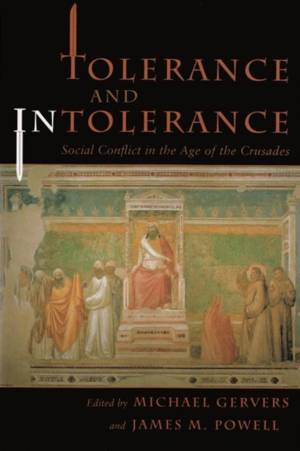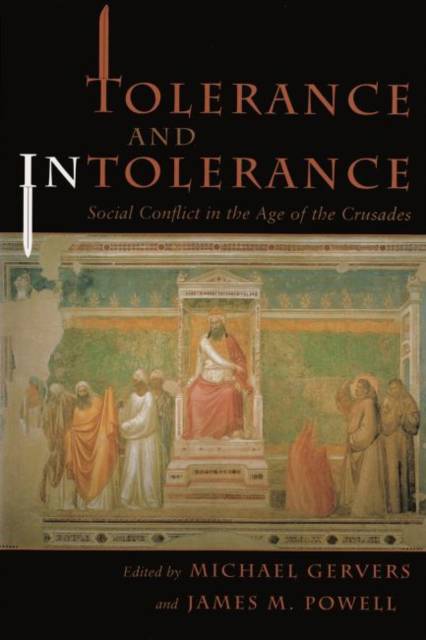
- Afhalen na 1 uur in een winkel met voorraad
- Gratis thuislevering in België vanaf € 30
- Ruim aanbod met 7 miljoen producten
- Afhalen na 1 uur in een winkel met voorraad
- Gratis thuislevering in België vanaf € 30
- Ruim aanbod met 7 miljoen producten
Zoeken
Tolerance and Intolerance
Social Conflict in the Age of the Crusades
€ 38,45
+ 76 punten
Omschrijving
This wide-ranging collection explores the issue of tolerance during the period of the Crusades through the treatment of prisoners, the ransom of captives, and the problems faced by many groups. One of the central issues revolves around the attitudes of the participants.
There were significant differences between Latin and Eastern Christians as well as between Christians and Muslims and among Christians, Muslims, and Jews. But, too, an exaggerated emphasis on the religious roots of intolerance has oversimplified the ways in which ideas of tolerance developed. The essays explore these relationships in their complexity in order to penetrate those generalizations that have often distorted more than enlightened. Tolerance and intolerance therefore are terms that can obscure as much as enlighten. What the reader discovers in this collection is that these attitudes play an important role in the shaping of international relations. Cross-cultural cooperation was not rare--not entirely surprising given the diversity of groups involved.Specificaties
Betrokkenen
- Uitgeverij:
Inhoud
- Aantal bladzijden:
- 212
- Taal:
- Engels
- Reeks:
Eigenschappen
- Productcode (EAN):
- 9780815628699
- Verschijningsdatum:
- 1/05/2001
- Uitvoering:
- Hardcover
- Formaat:
- Genaaid
- Afmetingen:
- 152 mm x 229 mm
- Gewicht:
- 480 g

Alleen bij Standaard Boekhandel
+ 76 punten op je klantenkaart van Standaard Boekhandel
Beoordelingen
We publiceren alleen reviews die voldoen aan de voorwaarden voor reviews. Bekijk onze voorwaarden voor reviews.










